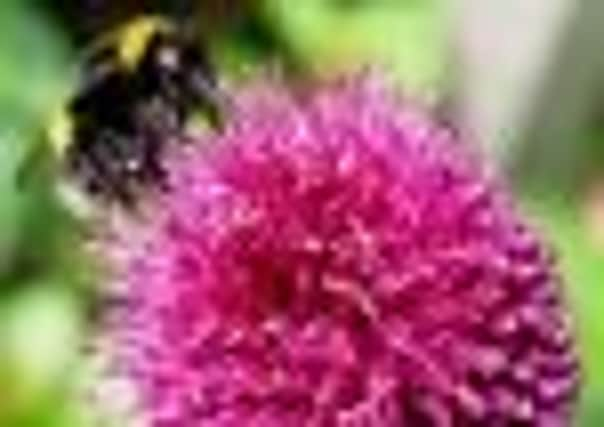The buds and the bees


Who says so? Friends of the Earth, which has unveiled a new campaign to save the bee, whose numbers are declining at an alarming rate.
The figure comes from research conducted by experts at the University of Reading on behalf of the environment charity, which has launched ‘The Bee Cause’ to call for action on bees before it’s too late.
Advertisement
Hide AdAdvertisement
Hide AdIn recent years, Britain has lost more than half the honey bees kept in managed hives – and wild honey bees are nearly extinct. Solitary bees are declining in more than half the areas where they’ve been studied, and some species of bumblebee have been lost altogether.
Bees and other pollinating insects are responsible for most of our favourite fruit and vegetables. One reason for their decline is a shortage of natural habitats, so Friends of the Earth has outlined simple steps people can take to help provide one:
Sow bee-friendly seeds and plant bee-friendly flowers such as mixed wildflowers packets, single-flowering roses, open and flat-headed flowers like verbena and yarrow, and flowers such as foxgloves;
Create a place to nest for solitary bees by piling together hollow stems and creating a ‘bee hotel’;
Advertisement
Hide AdAdvertisement
Hide AdTry to provide a small amount of rainwater in a shallow birdbath or tray which honeybees need to keep their hive at the right temperature.
Friends of the Earth wants the Government to commit to a bee action plan to save bees and save the country billions of pounds in the future.
Paul De Zylva, Nature Campaigner at Friends of the Earth, said: “Imagine a world without strawberries, apples or even coffee – bees are about much more than honey and our food supplies will be in trouble if they bite the dust.
“Unless we halt the decline in British bees, our farmers will have to rely on hand-pollination, sending food prices rocketing.
Advertisement
Hide AdAdvertisement
Hide Ad“But there are a few simple things we can all do to help – planting wildflowers in your garden or herbs in a window-box is a great way to provide food for bees and help them thrive.”
For more season by season bee-friendly plants, visit http://www.rhs.org.uk/Gardening/Sustainable-gardening/pdfs/RHS_Pollinators_PlantList.
You can join The Bee Cause at www.foe.co.uk/bees